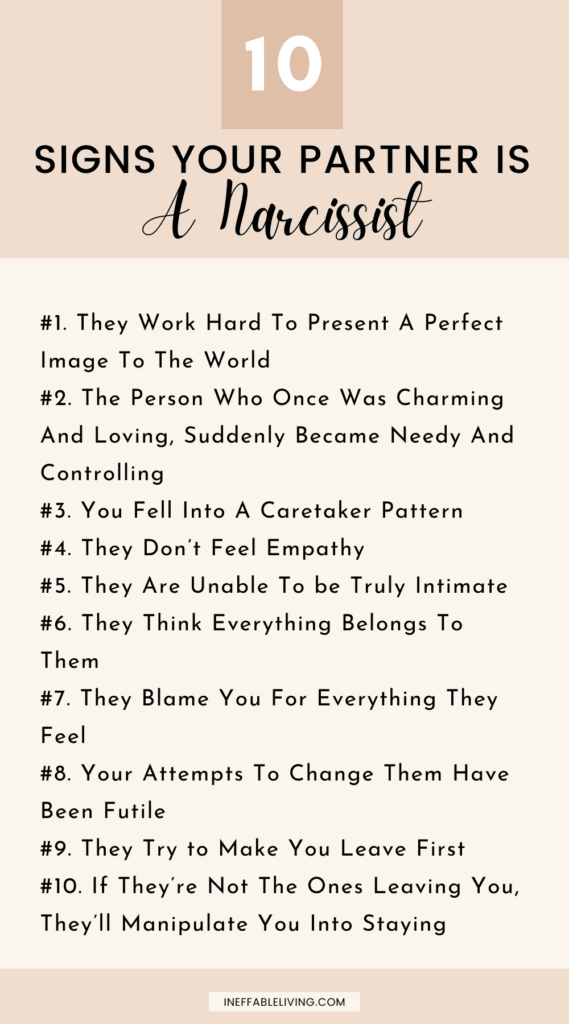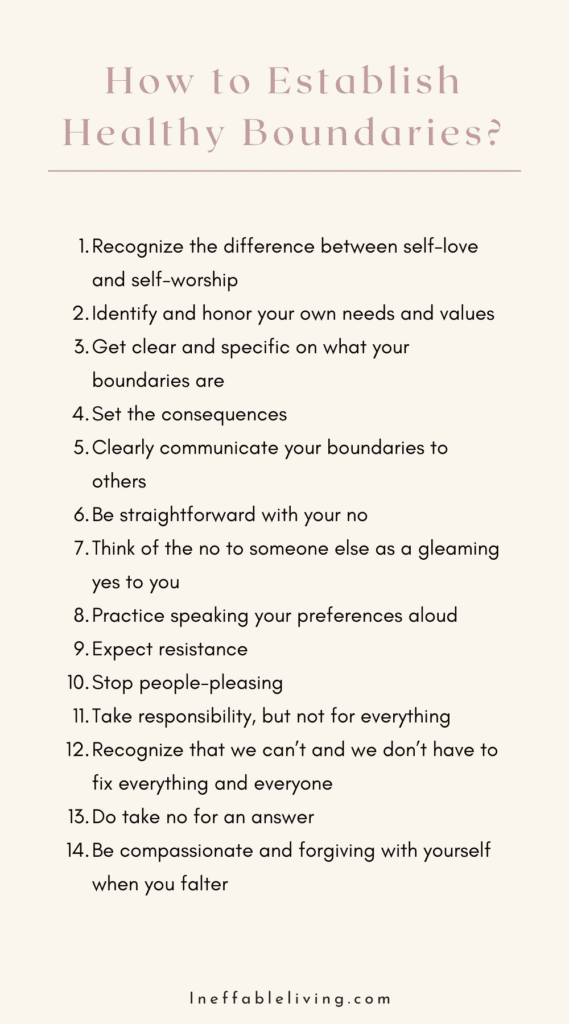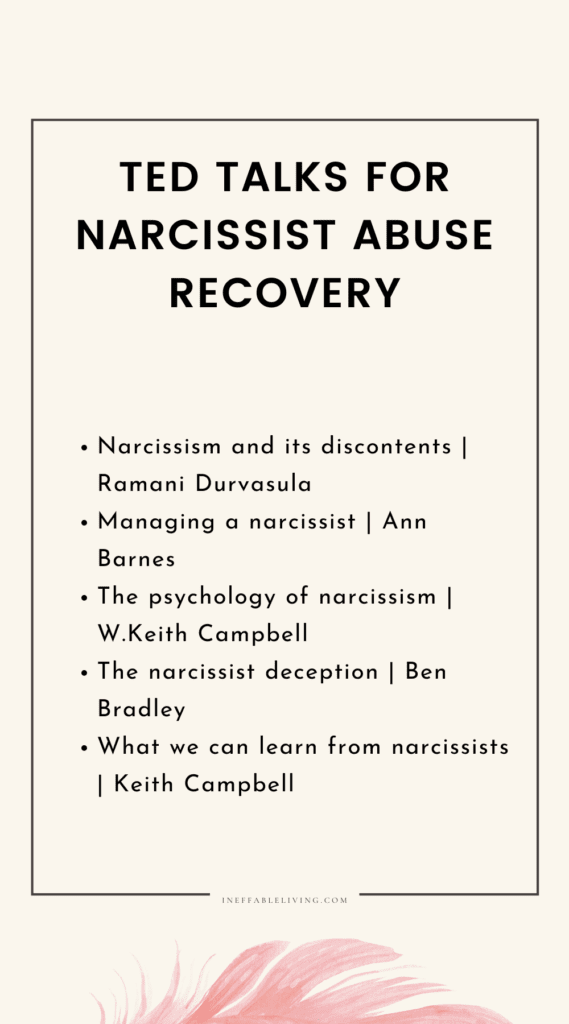Today, you’re going to discover the top 10 narcissistic relationship patterns and how to deal with these patterns.
Relationships with narcissists can be painful and complicated.
Narcissists can seem different every day.
They can be charming and loving one moment and demeaning and hateful the next.
They tell you one thing and then do another and when you confront them, they blame you and make you feel you’re the crazy one.
The relationship that started out almost like a fairy tale, turned almost instantly into a source of anxiety and frustration.
After showering you with flattery and telling you that this was the perfect relationship, almost suddenly they became controlling, blaming, and self-justifying.
You start feeling unheard, unappreciated, frustrated, anxious, and often depressed.
In an attempt to get your lover back, you discounted your needs and feelings and instead, you gave them more love and attention, hoping to get that loving feeling to return.
However, nothing seemed to make a difference for very long.
Despite the hopeful signs when they would suddenly be just as sweet and loving as you remembered, soon they switched back into anger and blame when everything didn’t go perfectly.
Eventually, one day they announced that the relationship just is no longer fulfilling or exciting or you’re too negative and needy.
If this describes your current or one of your previous relationships, then know that you’ve been dumped by a narcissist.
- What is Narcissistic Personality Disorder?
- Narcissistic Relationship Pattern
- Narcissistic Relationship: Should You Stay? Should You Leave?
- Can a Narcissist Change?
- 14 Tips On How To Deal With Narcissistic Relationship Patterns
- If You Choose to Leave: Ending A Narcissistic Relationship
- FAQ
- FREE Toxic Relationship Worksheets
What is Narcissistic Personality Disorder?
The American Psychiatric Association’s official manual of mental disorders DSM-5 defines narcissistic personality disorder as “A pervasive pattern of grandiosity (in fantasy or behavior), need for admiration, and lack of empathy.”
Diagnostic criteria for narcissistic personality disorder defined by the DSM-5 include:
1. Has a grandiose sense of self-importance (e.g., exaggerates achievements and talents, expects to be recognized as superior without commensurate achievements).
2. Is preoccupied with fantasies of unlimited success, power, brilliance, beauty, or ideal love.
3. Believes that he or she is “special” and unique and can only be understood by, or should associate with, other special or high-status people (or institutions).
4. Requires excessive admiration.
5. Has a sense of entitlement (i.e., unreasonable expectations of especially favorable treatment or automatic compliance with his or her expectations).
6. Is interpersonally exploitative (i.e., takes advantage of others to achieve his or her own ends).
7. Lacks empathy: is unwilling to recognize or identify with the feelings and needs of others.
8. Is often envious of others or believes that others are envious of him or her.
9. Shows arrogant, haughty behaviors or attitudes.
Related: The Ultimate Guide to Protect Yourself From a Narcissist
Narcissistic Relationship Pattern
#1. They Work Hard To Present A Perfect Image To The World
Narcissists have an intense need to look perfect and more significant than anyone else. They hide and deny, even to themselves, these inner flaws.
Although they work hard on maintaining their façade, eventually, they become immersed wholly and completely in their fantasy of themselves and start believing it. That is why they are so believable.
The truth is narcissists are two people in one body. The façade or false positive self is only there to protect and hide a repressed, vulnerable, and despised inner self.
#2. The Person Who Once Was Charming And Loving, Suddenly Became Needy And Controlling
They entered the relationship quickly and intensely, with lots of charm and attention on you.
However, once you got really close, you found they’re deeply selfish, needy, angry, and controlling.
#3. You Fell Into A Caretaker Pattern
When you’re in a relationship with a narcissist, you find yourself discounting your needs and giving up your dreams and opinions, and even your sense of individuality.
Instead, you start taking care of the narcissist’s need for attention and would even provide a scapegoat for their blame.
Instead of a team that works together for the benefit of all, you feel like the parent because the narcissist acts like a child who needs lots of caring and attention.
#4. They Don’t Feel Empathy
Narcissists can’t seem to figure out what you feel, and would respond with little caring.
When you tell them that you feel different or you want something different than they do, they don’t believe you and would accuse you of being wrong, stubborn, or even mentally ill.
In his book Zero Degrees of Empathy, Simon Baron-Cohen shares his thirty years of research on empathy. He concluded that narcissists have permanent underactivity in their empathy circuit and thus have minimal ability for empathy.
With intense training and motivation, narcissists can learn to respond to others more empathetically and appear caring, but they don’t feel more empathetic. They just learn what to say and do more appropriately.
Related: When A Narcissist Sees You Cry: Top 13 Reactions You May Be Familiar With
#5. They Are Unable To be Truly Intimate
Because of how strongly they came on at the beginning of the relationship, you might have had the impression that they truly wanted to be close and intimate.
However, narcissists don’t share their deepest feelings and true inner thoughts, and any attempts to reach these inner feelings are usually met with stonewalling and avoidance or outright anger and defensiveness.
Narcissists will give you just enough of whatever it is that you absolutely need to keep you in the relationship, while also allowing him a satisfactory level of control.
When something happens you immediately want to talk about it and fix it. However, narcissists just want to bury it and move on. They believe that talking is your way of trying to change them.
Related: Do Narcissists Cry?
#6. They Think Everything Belongs To Them
Narcissists are unwilling to share. They think everything belongs to them are surprised that you would get upset when they take what they want.
In case of a divorce, Male narcissists who made more money than their female partners or who talked their wives out of working would blame their wives for not “contributing” and expect to keep all of the assets.
#7. They Blame You For Everything They Feel
Narcissists have a delusional belief that everything they feel is caused by the things that happen to them and the people around them.
So when they feel uncomfortable, dissatisfied, or unhappy, they’ll blame you and make you feel responsible, even though the way you reacted or the things you said were perfectly acceptable or even delightful to someone else.
Narcissists are highly biased and skewed in their thinking, they can’t seem to understand how our interpretations and thoughts are the main reason behind the way we feel.
Related: The Narcissist’s Prayer Explained
#8. Your Attempts To Change Them Have Been Futile
You may have tried to fix things by changing how and what you said, and meeting more of the narcissist’s expectations.
However, in the long run, nothing really changes, and the narcissist always does what he wants to do.
When you try to explain and get him to understand how you feel or to follow your suggesons, your words don’t seem to make any sense to them. They pretend to understand, but in the long run, you can see how cluless they are.
Related: Caregiving vs Caretaking (The Savior Complex)
#9. They Try to Make You Leave First
Narcissists want to be always seen as blameless, especially when the relationship ends. The best way to do this is to make you leave them.
They would devalue you, put you down, make wounding comments, or just rudely ignore you along with doing and saying bizarre things while pretending that everything they do is perfectly normal and appropriate.
This leaves you furious and doubting yourself, and keeps them feeling righteous.
#10. If They’re Not The Ones Leaving You, They’ll Manipulate You Into Staying
They might even seem like they don’t want you to leave and are ready to work on the relationship.
Make the right promises and maybe even agree to go to therapy. However, they can’t seem to control their behaviors for any length of me.
They tell you all the “reasons” why you shouldn’t leave. However, these reasons are actually negative remarks, such as “You were nothing before I married you. Go back to that stupid family of yours. I can find someone who will really love me.”
These are manipulations to lower your self-esteem so you won’t leave.
Other ways to manipulate you include guilt.
Narcissists would bring up everything he has done for you or reminds you of the wonderful moments you’ve shared together.
And if you’re to point out anything wrong in what they did or said, they will blame it on you, especially when reacting with anger or start screaming.
Their blame and accusation of you being selfish, unkind, uncaring, or hurting their feelings, can increase your feelings of guilt, and make you redouble your efforts to prove to the narcissist that you’re not that kind of person. And this is what the narcissist wants because it reengages you in the relationship.
Related: 5 Weird Things Covert Narcissists Do To Manipulate Their Victims

Narcissistic Relationship: Should You Stay? Should You Leave?
There is no right answer here.
Some people believe that when it comes to marriage, you need to “fight” for it, unless the marriage becomes too toxic, such as physical abuse, verbal abuse, drug, and alcohol use, or repeated infidelity.
Other slow and subtle damages caused by the narcissist include disconnection and self-doubt, which may result in deep internal wounds. Such damage is not as obvious to others and makes getting support more challenging.
Can a Narcissist Change?
Whether you decide to stay or to leave, there’s one important thing you need to keep in mind; narcissists don’t change.
Human patterns such as addictions are hard to change, but because of the dire consequences addictions have on the addict’s life, at some point, that person will likely attempt to change.
Narcissism, unlike addictions, works for the narcissist. And today, we live in a culture that supports and celebrates narcissism, providing constant validation and portraying grandiosity as a key indicator of success.
Because his needs are being supported and are constantly met, narcissists don’t think there is anything wrong with being who they are, which makes the likelihood of change close to zero. (*)
However, narcissists can be quite vulnerable, oftentimes, oscillating back and forth from grandiose to fragile. During these moments of vulnerability, you may feel like rescuing him and believe that he’s going to change.
The truth is he will soak up your attention until he no longer needs you or the encouragement.
Furthermore, there is virtually no evidence of good treatment outcomes in the literature on narcissism. Even if narcissists get into treatment, there is no evidence that it will make a difference and definitely not in the long run.
Related: Can Abusers Change? Top 17 Myths About Abusive Men That Make Women Stay With Abusers
14 Tips On How To Deal With Narcissistic Relationship Patterns
Following are some tips to help you deal with the narcissist in your life while protecting yourself from their narcissistic abuse:
#1. Understand Why Narcissists Don’t Change
Narcissists don’t see their narcissism
The first and most important step in change is self-awareness.
Narcissists lack self-insight. They don’t understand how disturbing their behaviors are to others.
Without self-insight, the narcissist won’t see the necessity for change. The narcissist may even present himself as the victim or injured party, believing that it’s other people’s fault and that things would be so much better if others were to change.
Why Therapy or Counseling May Not Change a Narcissist?
Psychotherapy and counseling are only effective for people who recognize their role in creating their circumstances and are willing to change.
Sadly, this is rarely the case for a narcissist.
Examine your expectations when it comes to your relationship with the narcissist. Do you believe that with enough love and encouragement the narcissist will change? Did you try changing the narcissist before? How did that go?
#2. Let Go of Denial
A narcissist uses charisma and seemingly high self-confidence and high self-esteem to charm you and other people.
That is why it’s easy to be in denial as to what you’re dealing with.
You may even witness the narcissist treating other people completely different to the way they treat you, which further confuses you and even cause you to think something is wrong with you.
It’s important to recognize the narcissist for who they are in order to be able to evaluate what you need and what you are not getting in the relationship.
Related: Can Abusers Change? Top 17 Myths About Abusive Men That Make Women Stay With Abusers
#3. Decide If You Are Ready to Work on The Relationship
Can You Have A Healthy Relationship With A Narcissist?
Ask Yourself, “Can I Forgive and Move Forward?”
Before you decide to work on the relationship, you’ll need to forgive the narcissist for any past hurt.
It’s almost impossible to harbor resentment and maintain a good relationship at the same time.
Remember forgiving is never about the other person. It’s always about you. You forgive to free yourself and feel peaceful again.
Ask yourself, “Am I Willing to Work on Just Myself?”
You need to accept that you can only change yourself.
You need to also resist the temptation of falling back into old patterns and trying to change the narcissist.
This might seem unfair, but it’s also empowering to know that you are in control and that you don’t have to wait for anything from the narcissist.
Related: 21 Stages of a Narcissist Relationship (+FREE Breakup Recovery Worksheets)
#4. Detach with Love
Detachment is a concept that originated in Al-Anon – a worldwide fellowship that offers a program of recovery for the families and friends of alcoholics.
It states that you can detach from an alcoholic’s behavior while not shutting off the person or your love for him.
Detachment is when you don’t make narcissism about you. This requires from you to:
(1) Identify narcissistic behavior in the other person, like acting in an arrogant or entitled way.
(2) Accept these behaviors and attitudes as part of narcissism.
So when the other person is demanding attention or special treatment, instead of feeling hurt or frustrated, you accept that this is what narcissists do: they demand attention.
When you remain detached – when you don’t take the narcissist’s behavior personally, you are neither accepting the blame nor reacting defensively.
In other words, you no longer react to narcissistic behavior or attitudes since you don’t expect the narcissist to act differently.
Related: 6 Healthy Relationship Tips For Couples (ACT In Relationships)
#5. Take Better Care of Yourself
When you are in a relationship with a narcissist, you can expect to get very little from them.
This is because narcissists are often so absorbed with themselves and their own agendas that they have little to give others.
Your task here is to take care of yourself and get your needs met elsewhere.
Taking care of yourself begins with lowering your expectations of this person.
Consider people in your life you can count on. If not, get to know people. Sign up for a yoga, or dance class. Attend a support group. Find a club of your interest.
Related: 45 Easy Self Care Day Ideas at Home for a Healthy Mind, Body & Soul
#6. Increase Your Self-Esteem
Dealing with a narcissist for any appreciable length of time can make you feel that you don’t count or don’t matter.
The following are some suggestions to help you boost your self-esteem:
* Start doing more activities that are self-affirming – activities that are about you and your own preferences, such as pursuing your own interests and hobbies, or doing something on your own terms.
* Face your fears and what causes you anxiety. Avoidance behaviors serve only to intensify your fears. The more you face what you fear, the more confident you become.
* Take care of your health and well-being. Eat healthy food, exercise, and get some quality sleep. A growing number of studies has shown the strong link between physical and mental health.
* Visualize how you will be a month from now, three months from now, six months, or a year. Set goals for yourself and work every day to achieve them.
Related: Raising low self-esteem: 18 Ways to Build High Self-Esteem
#7. Empower Yourself by Setting Boundaries
If what you’ve been doing is not working, you need to start thinking of ways you can react that are different from how you usually react.
Here are ways to set limits:
1. Learn to Say No
If you find it hard to say no to the narcissist, you’ll need to add the word “no” to your vocabulary.
2. Be Firm
The narcissist may not take no for an answer and become more demanding.
The best thing you can do here is to “stick to your guns” and restate what you’ve told the narcissist. There is no need to explain and come up with an elaborate excuse.
3. Imagine If The Situation Was Reversed
If you are having a hard time saying no, try to imagine how would the narcissist react if you asked for something? If he was refusing, would he provide you with an explanation?
4. Don’t Give In to Threats or Intimidation
Remember if you give an inch, the narcissist will take a yard.
5. Identify Narcissistic Behavior You’re No Longer Willing to Tolerate
Write down a personal declaration that you are no longer willing to tolerate specific narcissistic behaviors any longer.
You don’t have to share this statement with anyone. It is a way to empower yourself and remind you to set boundaries.
Related: Healthy Boundaries Quiz (+Free Pdf Worksheets)

#8. Learn About Corrective Life Experiences
Although it is commonly known that narcissists are unlikely to change, psychiatrist Elsa Ronningstam (2005) emphasizes that “corrective life experiences” can sometimes change narcissists into compassionate human beings.
These life experiences include achievements, relationships, and disappointments.
Corrective achievements, for example, can provide the narcissist with the type of self-validation that he lacked as a child, which may help him let go of the need for constant praise or recognition.
Corrective relationships can help the narcissist set his sense of specialness or entitlement aside and cultivate a willingness to accept a partner for who they are. Empathic communication in such relationships can also help the narcissist consider their partner’s perspective and feel compassion toward them.
Corrective disappointments usually include hard life lessons, such as a loss of a job or a relationship, that help the narcissist realize that he has no one to blame but himself and consider his role in creating his circumstances.
#9. Maximize the Positives and Minimize the Negatives
Every relationship has its negatives and positives. This is one reason that many people find their relationships with the narcissist worth working on.
Or perhaps your relationship is with a family member or an ex, with whom you are co-parenting.
To maintain a good relationship, you’ll need to detach from the negative.
This means creating physical or psychological distance from the narcissistic behaviors, such as refusing to go to certain places with the narcissist, or refusing to discuss certain topics.
You’ll also need to connect with the narcissist in other areas of the relationship that you value.
For example, you may tell the narcissist that once they get home from their evening out, you would love to watch a movie with them.
Start by making a list of negatives you want to detach from and positives you value.
Negatives:
- moodiness
- bragging
- using you
- negative statements about you and others
- monopolizing conversations
- blaming you for their mistakes
Positives:
- desire for travel and adventure
- certain hobbies and interests
- enthusiasm
- knowing how to take care of themselves
#10. Being Assertive With A Narcissist: Try Modified Assertiveness
Assertiveness is direct, respectful, and nondefensive.
You can express how you feel without sounding aggressive, judgmental, or manipulative.
Try doing the following:
1. Identify your feeling and simply state it, “I felt ___________ when you did___________ .”
2. Remind yourself that feelings are neither right nor wrong. They constitute your personal internal experience. You don’t have to explain and justify your feelings.
3. Notice how you feel afterward. A good assertive statement, shouldn’t leave you fuming or feeling guilty.
4. Keep practicing. Even if an interaction didn’t go well, try visualizing a different scenario where you see yourself assertively expressing your feelings. The more you see it your mind, the better your future interactions will go.
Keep in mind that confronting the narcissist directly may cause him to become either defensive or angry.
This is because narcissists usually take clear and direct assertive statements as an assault on their character, as in saying “How dare you attack ME.”
So you may need to modify your assertive statements in a way that will help the narcissist hear you.
The key is to show the narcissist empathy so he can feel heard, explain your perspective, and state your need.
Think of it as if you were dealing with an angry child who’s throwing a tantrum. You don’t want to give in to his demand, but you don’t want to escalate the argument either.
Example:
Narcissist: “I need you to stay late and finish this project.”
Assertive response: “I feel taken advantage of when you ask me something like this. I have plans for this evening I won’t be able to stay late today.”
Assertive response to narcissist: “I understand the dilemma you’re in about getting the project complete. But, I already have plans for this evening. Maybe I can come in early tomorrow and work on it?”
Related: How to Be More Effective in Relationships (Effective Communication)
#11. Be the Adult
Transactional analysis (Harris 1967) suggests that we all have three ego states: the parent, the child, and the adult.
For example, when someone makes critical remarks about you, they may be acting in the parental role.
Responding in the child role, you may throw a tantrum by yelling and screaming or by sulking or crying.
In the adult role, on the other hand, you deal with the person’s remarks in a calm way.
The optimal level of communication would be adult-to-adult communication. Sadly, the narcissist usually responds in the parent role (harsh, critical), or the child role (demanding).
Your goal here is to stay in the adult role.
Related: Best 15 Inner Child Exercises: How To Connect With Your Inner Child (& Heal Your Childhood Wounds)
#12. Model and Reinforce Appropriate Behavior and Responses
You can model more positive, empathic behavior without inciting a defensive reaction or an attack by acknowledging thoughtful, considerate, generous, or empathic behaviors performed by the narcissist.
This will give the narcissist what he really wants from you: your approval or admiration and reinforce more positive behaviors.
For example, you can say:
“I really appreciate it when you compliment me or acknowledge my work.”
“I really like it when you are so generous.”
“You really can be very caring and considerate.”
#13. Learn How to Deal with and Temper Tantrums Effectively
When the narcissist throws tantrums rather easily, try the following strategies:
- Try to understand and empathize with the angry person’s perspective.
- Speak softly, in a nondefensive way.
- Don’t try to reason with the angry person or use explanations.
- Create distance and ask for time to come up with a win-win solution.
If the narcissist is less prone to tantrums, you can use assertiveness to address the argument or simply choose not to walk away from the fight or at least wait to respond until the narcissist has calmed down and is more likely to hear you.
Related: How To Manage Your Anger In Healthy, Effective Ways?
#14. Keep Yourself Safe
Not all narcissists are physically abusive, but most violent abusers tend to be narcissists.
They may come up with excuses for their abusiveness as a means of blaming other people and avoiding taking responsibility for their behavior, as in saying “You pushed my buttons and made me hit you.”
If you find yourself in a relationship with a narcissist that has the potential for violence, you will need to keep yourself safe.
Contact the domestic violence counseling centers in your community and get numbers for twenty-four-hour hotlines and the phone numbers of your local police department. https://www.thehotline.org/
Put together an emergency kit that you can grab quickly. Put things like your Social Security number, credit cards, checkbooks, cash, your medical insurance card, an extra set of car keys, and a list of emergency numbers.
Give a friend, trusted family member, a signal or code word that you will use if you need help.
If You Choose to Leave: Ending A Narcissistic Relationship
How To Leave Narcissistic Relationship?
#1. Prepare for Narcissistic Rage
Narcissists tend to be paranoid. They do not like to be played or abandoned.
A separation, especially when children and assets are involved, is highly inconvenient for the narcissist. And if you’re the one who asks for a separation, you need to expect withdrawal, rage, and pettiness.
If you think you’re going to in risk of violence, you need to mobilize legal and public safety entities to address the situation.
* If you believe you are in danger call 911.
* The National Domestic Violence Hotline is 1-800-799-7233 (1-800-799-SAFE) (TTY 1-800-787-3224).
* The National Resource Center on Domestic Violence (www.nrcdv.org)
#2. Practical Preparation
Here are some practical things you might need to consider when leaving a narcissistic partner:
1. Documenting everything
Because narcissists are skilled liars and deflectors, you will need to document everything. This includes:
* Keeping a log of relevant facts that you might use for litigation or simply for your own sanity.
* Saving abusive and other relevant e-mails and text messages
2. Reach out to your friends and family
Feelings of shame might have prevented you before from sharing your struggles with the other people you trust. When leaving the narcissist, you’re going to need support and comfort.
3. Get therapy or counseling
Therapy is essential to grow and heal, especially after the damage of a relationship with a narcissist.
Choose a therapist who knows the landscape of narcissism.
Therapy may also be an important for your children. Regardless of the circumstances, divorce is always challenging for children, and support is much needed.
4. Make structural changes
Changes such as changing locks, shutting down joint accounts or shared phone account, informing employers, might be necessary.
Seek legal counsel to ensure that you can make these changes in a timely manner so you can protect yourself and your finances.
#3. Psychological Preparation
The “psychological” preparations are as important as the practical ones.
1. Ignore the blame and accusations
2. Remember that your partner will never change
3. Embrace your emotions—and take care of yourself

FAQ
Why Do We Become Attracted To Narcissists?
If you came from dysfunctional or abusive homes, healthy self-love was probably never modeled or displayed. Therefore, a narcissist who appears to exude self-confidence and entitlement may seem to you someone who has all that you were not given as a child.

FREE Toxic Relationship Worksheets
References
- Portions of this article were adapted from the book Healing from a Narcissistic Relationship, © 2017 by Margalis Fjelstad. All rights reserved.
- Portions of this article were adapted from the book Should I Stay Or Should I Go, © 2015 by Ramani Durvasula. All rights reserved.
- You Probably Think this Paper’s About You: Narcissists’ Perceptions of their Personality and Reputation – PMC (nih.gov)
- Narcissism Driven by Insecurity, Not Grandiose Sense of Self, New Psychology Research Shows (nyu.edu)
- Narcissism study sheds new light on the relationship between grandiose and vulnerable subtypes (psypost.org)
- Study shows Narcissistic Personality Disorder may have a biological component – UChicago Medicine
- Study Finds Link Between Narcissism and Aggression (verywellmind.com)
- A Study of Narcissism, Affiliation, Intimacy, and Power Motives among Students in Business Administration – Lynne Carroll, 1987 (sagepub.com)
- There Are Two Types of Narcissist, And The Difference Is Crucial, Research Shows (sciencealert.com)
- Effects of Narcissistic Abuse (verywellmind.com)
- The Effect of Pathological Narcissism on Interpersonal and Affective Processes in Social Interactions – PMC (nih.gov)
- Narcissistic personality disorder – Symptoms and causes – Mayo Clinic
- Frontiers | The Higher the Score, the Darker the Core: The Nonlinear Association Between Grandiose and Vulnerable Narcissism | Psychology (frontiersin.org)
- (PDF) Narcissistic Personality Disorder: Impact on Relationships (researchgate.net)
- Mediation effect of narcissism on the relationship between empathy and the quality of interpersonal relationships – ScienceDirect
- Narcissism: 5 Signs to Help You Spot Narcissistic Behavior (webmd.com)




Comments are closed.